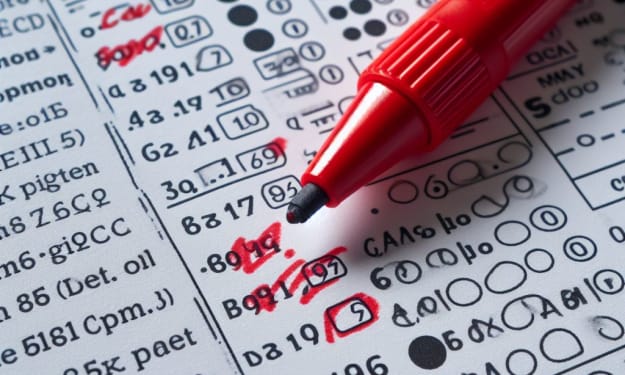
Have you ever wondered how intelligence is measured? IQ tests have long been used as a tool to assess cognitive abilities and provide a standardized measure of intellectual capacity. But just how high can someone's IQ score go? In this article, we will explore the upper limits of the IQ scale and delve into the interpretation and significance of these scores.
IQ stands for Intelligence Quotient, and it is a numerical assessment of a person's intelligence based on their performance in a standardized test. The test is designed to measure various aspects of cognitive abilities, including logical reasoning, problem-solving, memory, and verbal and mathematical skills. Results are compared to a normative sample to determine an individual's IQ score.
The IQ scale typically ranges from 0 to 200, with an average score set at 100. This means that the majority of people fall within the range of 85 to 115, which represents one standard deviation above or below the mean. An IQ score above 130 is considered to be in the gifted range, indicating exceptional intellectual abilities.
But what about scores that exceed 200? While it is theoretically possible to achieve a score higher than 200, it is extremely rare. IQ tests are specifically designed to measure intelligence within the general population, and as such, the test questions are calibrated to fit a certain range of skills and abilities. Scores that are significantly higher than 200 may not accurately reflect a person's true intellectual capacity and can be influenced by various factors, such as test bias and inadequate measurement tools.
It is important to note that IQ tests are just one measure of intelligence and should not be considered the sole indicator of a person's intellectual capabilities. Intelligence is a multifaceted concept that encompasses a wide range of abilities - not all of which can be accurately captured by a single test. Other factors, such as emotional intelligence, creativity, and practical skills, also contribute to a person's overall intellectual capacity.
The interpretation of IQ scores is based on the concept of the normal distribution, also known as the bell curve. In a normally distributed population, the majority of individuals will have IQ scores clustered around the average, with fewer individuals scoring at the extremes. The standard deviation is a statistical measure that quantifies the variability of scores within a population. In the case of IQ tests, a standard deviation of 15 is commonly used.
By using the standard deviation, we can determine the rarity of high IQ scores. For instance, an IQ score of 145 is considered to be 2 standard deviations above the mean, placing it in the top 2.5% of the population. An IQ score of 160, which is 3 standard deviations above the mean, represents the top 0.1% of the population. As we move higher along the IQ scale, the rarity of these scores increases exponentially.
The highest recorded IQ score belongs to the famous mathematician and physicist, Albert Einstein, who reportedly had an estimated IQ score between 160 and 190. However, it is important to note that this estimation is based on anecdotes and not on a formal IQ test. While Einstein's intellectual brilliance is unquestionable, his actual IQ score remains a matter of speculation.
In conclusion, the upper limit of the IQ scale is theoretically limitless but practically constrained by the design and calibration of IQ tests. While it is possible to achieve scores higher than 200, these scores are extremely rare and may not accurately reflect a person's true intellectual capacity. IQ tests are just one measure of intelligence, and it is important to consider other factors that contribute to a person's overall intellectual capabilities. The interpretation of IQ scores relies on the normal distribution and the concept of standard deviation. As we move higher along the IQ scale, the rarity of these scores increases exponentially. So, while the highest recorded IQ score remains elusive, it is the continuous pursuit of knowledge and intellectual growth that truly defines intelligence.
About the Creator
IQ Metrics
IQMetrics.org is a comprehensive platform offering insightful resources on IQ testing, assessments, and understanding intelligence metrics.
http://iqmetrics.org






Comments
There are no comments for this story
Be the first to respond and start the conversation.